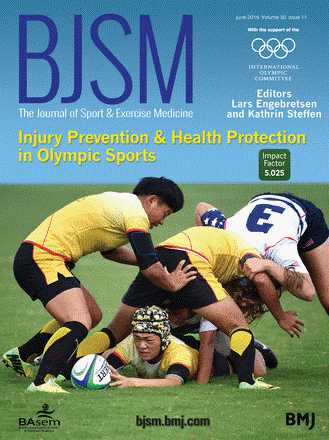The countdown has begun! From Friday 5th August, athletes from 206 countries will be vying for a place on the podium in over 300 events, aiming to secure a spot in the annals of history. Whilst it is the pinnacle of most athletes careers, as much of the honour and passion is shared amongst family, friends and support staff, the majority of whom will have been invested in the journey for the athlete’s lifetime. Whilst we wish the athletes the very best of luck, we also spare a thought for the medical & science support staff – for whom the Olympics present a unique honour – as it is often forgotten that these individuals will have worked for countless years and put in the same hours as the athletes to reach this level of practice.
 For the aforementioned support staff, the International Olympics Committee’s (IOC) Medical and Scientific Commission have been a constant source of support and information, be it by contributing to consensus statements (such as the recent Exercise & Pregnancy consensus statement) or by providing world-leading resources such as the GetSet injury prevention app, or providing training in the form of the IOC Diploma in Sports Medicine.
For the aforementioned support staff, the International Olympics Committee’s (IOC) Medical and Scientific Commission have been a constant source of support and information, be it by contributing to consensus statements (such as the recent Exercise & Pregnancy consensus statement) or by providing world-leading resources such as the GetSet injury prevention app, or providing training in the form of the IOC Diploma in Sports Medicine.
Likewise, the IOC will be providing support for the medical staff during the games themselves! As Professor Lars Engebretsen told us, “Rio will not only be happening for the athletes, but also for the physicians and physiotherapists working for the national Olympic committees. There will be a multifaceted sports medicine academic programme running almost daily for the duration of the Games”. Exciting!
The IOC’s medical and scientific commission have historically shaped the Injury Prevention and Health Protection (IPHP) issues of BJSM, with Professor Engebretsen and Dr Kathrin Steffen the current brains behind the operation in that regard. As a treat for BJSM readers, this June sees an ‘Olympics Special Edition’ – a collection of Olympics-focused articles that are sure to wet the appetite for both the Olympics and the subsequent Paralympics this summer. From covering classic sports such as hockey and tennis to golf and the recently-reinstated Rugby Sevens – it won’t disappoint!
We have no doubt that you will enjoy this issue – and our thanks once again go to the IOC for shaping it and for continually driving the standards around the welfare of the world’s athletes. We implore you to continually check their website for new resources and information, and we will also try to point any updates on our social media channels. In the same vein, if you haven’t yet signed up for the IOC World Conference on Prevention of Injury & Illness in Sport (@IOCprev2017) then we couldn’t recommend it highly enough – a whole host of world-leading experts in a glorious setting.
What can you expect from BJSM in regard to the Olympics?
Our social media team will be actively contributing on various channels to any Sports Medicine related issues in the Olympics and Paralympics – so make sure you’re following us on Twitter, Facebook & Google+ and get set for a raft of both historical and new podcasts, blogs & articles!
Further, consider the blog the SEM’s community platform for the Olympics. If you are on the ground in Rio (as either a practitioner or observer), or watching issues unfold from afar, and have insights and experiences to share, please don’t hesitate to contact us with your blog ideas.
Contact: steffangriffin@gmail.com and karim.khan@ubc.ca
We hope you enjoy the ‘Olympics Special Edition’ as well as the coming Games, and good luck to all the support staff in Rio from all at BJSM!
To close – a message from the editors!
“Enjoy the Rio edition of BJSM IPHP; it will provide you with great examples of work within the Olympic movement and highlight the role of sports medicine and science for the best preparation of our athletes”